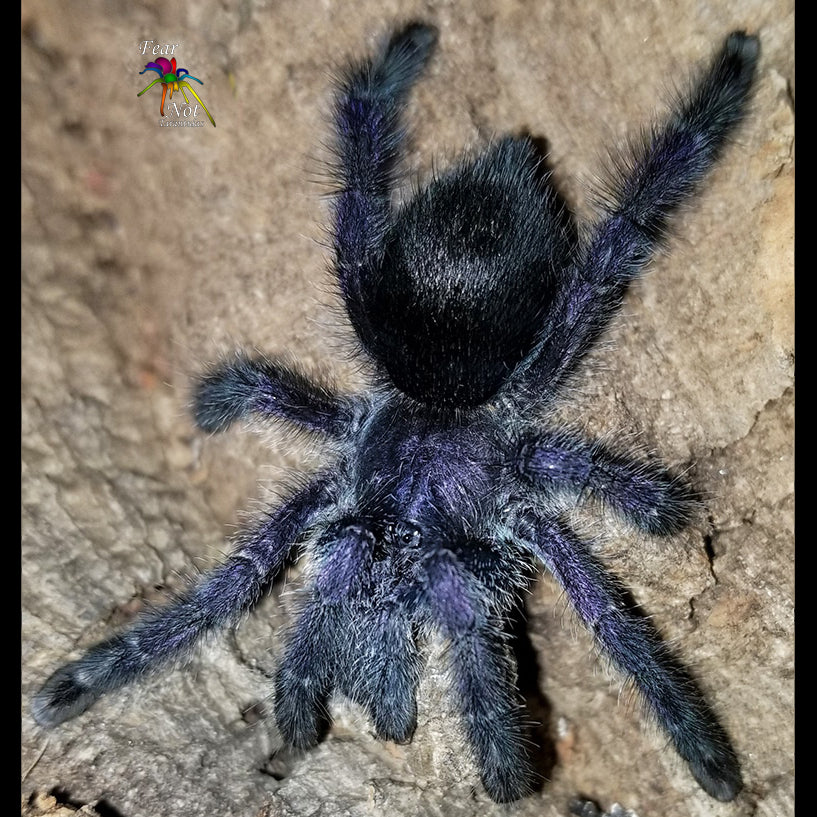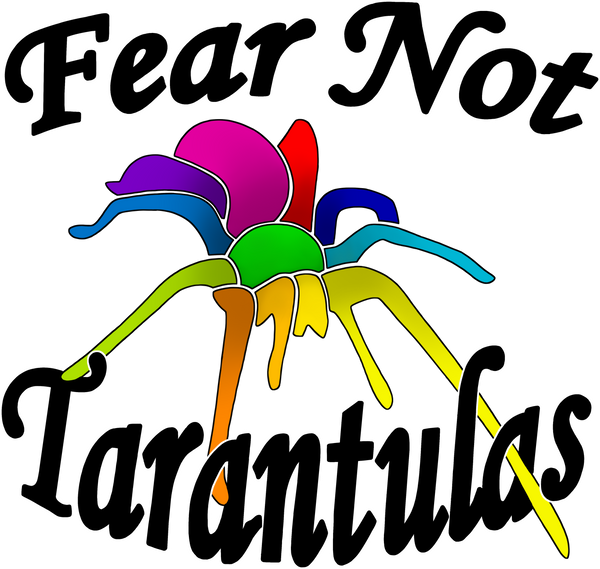Fear Not Tarantulas, Inc.
Avicularia purpurea (Purple Pinktoe Tarantula) about 3/4"-1"
Avicularia purpurea (Purple Pinktoe Tarantula) about 3/4"-1"
5.0 / 5.0
(2) 2 total reviews
Couldn't load pickup availability
We feed our spiderlings red runner (Turkish roach) roaches and crickets.
Avicularia purpurea (Purple Pinktoe Tarantula) For sale!
Scientific Name: Avicularia purpurea
Common Name: Purple pinktoe, purple tree tarantula
Type: New world, arboreal
Endemic Location: Ecuador
Adult Size: 4-5”
Diet: Crickets, roaches and mealworms
Congratulations on adding one of the most beautiful and sought after arboreal species to your collection!
HOUSING: We suggest housing this species in one of the vials below.
https://fearnottarantulas.com/products/tarantula-habitat-square-vial or https://fearnottarantulas.com/products/vial-extra-ventilation
We want to share some tips for the care of these spiderlings with you. Spiderlings of this genus tend to be a bit more delicate, but there are some things you can do to help ensure that your spiderling stays healthy.
Housing: Your spiderling is still quite small and should be housed in a small habitat. In the wild they do not wander far from their webbing because they know it is risky for them to do so. They feel safe and secure within a small area where they have something to anchor webbing up high in the enclosure. Silk leaves work well for that because they are flexible. The enclosure cannot be too high or the spiderling will not be able to set up it’s webbing easily and will be stressed. Five to six inches is the tallest habitat it should go in. If a spiderling falls from a higher spot it could also get hurt and if this species is near molting it can be more difficult for it to climb up the sides of the habitat. It is important to have tiny leaves (such as ivy) in the enclosure to web on. They use small leaves to web them together. This also makes it easier to feed them. We highly recommend that you do not use an arboreal habitat that is upside down while this species is small. A 50 dram vial works well for a 1/2" - 1" spiderling.
Feeding: Spiderlings from this genus tend to not venture downward in their enclosure to hunt for food. It is a good idea to try putting partially disabled food directly on their webbing for them. Many times they will take it directly from tongs or dull tweezers. If you are using a habitat that has been turned upside down (where the top is used as the bottom), it makes it difficult to accomplish this.
Humidity: Lightly spraying the sides and a little on the webbing every 4 days or so is sufficient. If you see their habitat is maintaining humidity, you might consider drawing that out a bit. If you see condensation on the habitat walls, it is too humid.
Thanks again and Happy Spidering!
The Fear Not Team
Additional care information can be found on Tom's Big Spiders
https://tomsbigspiders.com/2019/08/02/caribena-versicolor-the-martinique-pinktoe/#more-5556

Share


